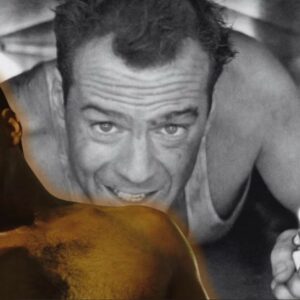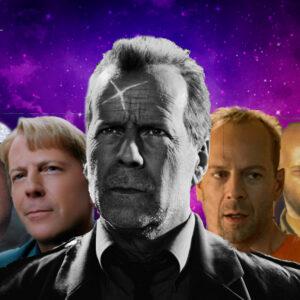In a powerful display of solidarity and advocacy, actor Daniel Radcliffe recently took on a new role as moderator for a roundtable discussion organized by The Trevor Project. This influential event brought together trans and nonbinary youth to share their experiences and discuss critical issues affecting their lives. Radcliffe, known for his portrayal of Harry Potter and his continued support for LGBTQ+ rights, used his platform to amplify the voices of those often marginalized and overlooked. This article delves into the significance of the roundtable, the impact of Radcliffe’s involvement, and the broader context of LGBTQ+ advocacy.
The Trevor Project: A Brief Overview
The Trevor Project, founded in 1998, is a leading nonprofit organization dedicated to providing crisis intervention and suicide prevention services to LGBTQ+ youth. Its mission is to end suicide among LGBTQ+ young people by providing a safe and supportive environment where they can seek help and resources. The organization operates a 24/7 crisis hotline, offers text and chat services, and engages in advocacy to promote LGBTQ+ rights and mental health support.
The Trevor Project’s initiatives are rooted in the belief that every young person deserves to be heard and supported. By focusing on providing critical resources and raising awareness about the challenges faced by LGBTQ+ youth, the organization plays a crucial role in fostering a more inclusive and understanding society.
Daniel Radcliffe: A Commitment to LGBTQ+ Advocacy
Daniel Radcliffe has long been an ally to the LGBTQ+ community. Known globally for his role as Harry Potter, Radcliffe has used his fame to champion various causes, including LGBTQ+ rights. His advocacy work includes supporting organizations such as The Trevor Project and participating in campaigns that aim to raise awareness and promote equality.
Radcliffe’s commitment to LGBTQ+ issues is evident in his public statements and actions. He has spoken out against discriminatory practices and has been vocal about the need for greater acceptance and support for marginalized communities. His involvement in moderating the roundtable discussion for The Trevor Project further underscores his dedication to these causes.
The Roundtable Discussion: Key Highlights
The roundtable discussion moderated by Daniel Radcliffe was a landmark event that provided a platform for trans and nonbinary youth to share their stories and discuss the issues that matter most to them. The conversation was marked by candor, empathy, and a deep commitment to understanding and addressing the unique challenges faced by these young people.
The Importance of Representation
One of the central themes of the roundtable was the importance of representation. For many trans and nonbinary youth, seeing their experiences reflected in media and public discourse can be a powerful validation of their identities. Radcliffe emphasized the significance of representation in fostering a sense of belonging and self-worth among LGBTQ+ youth.
The participants shared how media portrayals of trans and nonbinary individuals often fall short of capturing the diversity and complexity of their experiences. They discussed the need for more nuanced and accurate representations that go beyond stereotypes and highlight the full range of their identities.
Mental Health and Support Systems
Mental health was another critical topic discussed during the roundtable. Trans and nonbinary youth often face unique mental health challenges, including higher rates of depression, anxiety, and suicidal ideation. The participants highlighted the importance of having access to supportive mental health resources and safe spaces where they can openly discuss their feelings and seek help.
Radcliffe and the participants talked about the role of community support and the need for more resources tailored specifically to the needs of LGBTQ+ youth. The conversation also touched on the impact of societal stigma and discrimination on mental health and the importance of creating environments where young people feel valued and supported.
Navigating Identity and Acceptance
The roundtable also delved into the experiences of navigating identity and seeking acceptance from family, friends, and society at large. For many trans and nonbinary youth, the journey to self-acceptance can be fraught with challenges, including rejection and misunderstanding from those closest to them.
Participants shared their personal stories of coming out and the varying degrees of acceptance they encountered. The discussion highlighted the importance of supportive relationships and the need for allies to stand up against prejudice and advocate for greater understanding and inclusion.
Policy and Advocacy
Advocacy and policy changes were key areas of focus during the discussion. Participants expressed a desire for more comprehensive legal protections and policies that address the specific needs of trans and nonbinary individuals. Radcliffe and the panelists discussed the impact of legislative changes on the lives of LGBTQ+ youth and the importance of continued advocacy at both local and national levels.
The roundtable underscored the need for ongoing efforts to create inclusive policies and practices that promote equality and safeguard the rights of all individuals, regardless of their gender identity.
The Impact of Radcliffe’s Moderation
Daniel Radcliffe’s role as moderator brought significant visibility and attention to the issues discussed during the roundtable. His presence and engagement helped to elevate the conversation and ensure that the voices of trans and nonbinary youth were heard by a wider audience.
Radcliffe’s ability to facilitate a thoughtful and respectful dialogue contributed to the overall success of the event. His support and advocacy helped to amplify the messages of the participants and reinforce the importance of addressing the challenges faced by LGBTQ+ youth.
By using his platform to champion these critical issues, Radcliffe demonstrated the positive impact that public figures can have in advancing social change and fostering a more inclusive society. His involvement in the roundtable serves as a reminder of the power of allyship and the importance of standing in solidarity with marginalized communities.
Broader Implications and Future Directions
The roundtable moderated by Daniel Radcliffe is part of a broader movement toward greater inclusivity and support for LGBTQ+ individuals. It highlights the ongoing need for advocacy, education, and policy changes to address the unique challenges faced by trans and nonbinary youth.
As society continues to grapple with issues of equality and representation, events like this roundtable play a crucial role in driving meaningful change. They provide a platform for marginalized voices to be heard and contribute to a greater understanding of the experiences and needs of LGBTQ+ individuals.
The conversation initiated by the roundtable has the potential to inspire further dialogue and action. By continuing to engage in discussions about representation, mental health, acceptance, and advocacy, we can work toward creating a more inclusive and supportive environment for all individuals.
Conclusion
Daniel Radcliffe’s moderation of the roundtable discussion for The Trevor Project represents a significant moment in the ongoing effort to support and uplift trans and nonbinary youth. Through his involvement, Radcliffe has helped to amplify important voices and bring attention to the critical issues affecting LGBTQ+ individuals.
The roundtable not only provided a valuable platform for sharing experiences and discussing challenges but also highlighted the broader need for continued advocacy and support. As we move forward, it is essential to build on the momentum generated by events like this and work towards a more inclusive and understanding society for all.
In reflecting on the impact of the roundtable and Radcliffe’s role, we are reminded of the power of solidarity and the importance of standing together in the fight for equality and justice. By supporting organizations like The Trevor Project and engaging in meaningful dialogue, we can contribute to a brighter and more inclusive future for LGBTQ+ youth and beyond.





